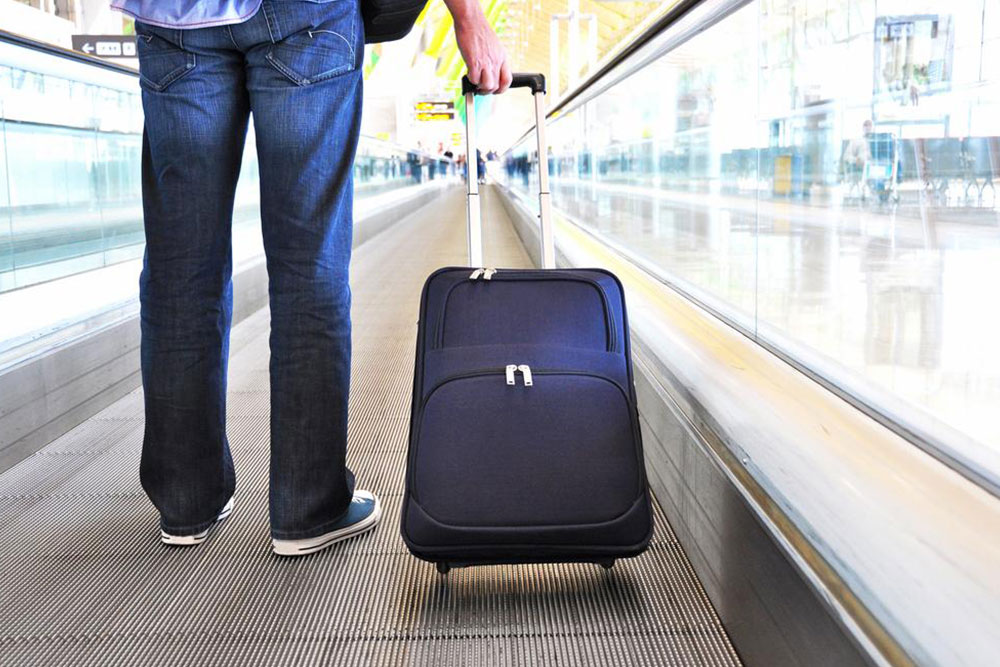Complete Guide to Baggage Delay and Loss Insurance: Protecting Your Travel Experience
This comprehensive guide explores baggage delay and loss insurance, helping travelers understand airline policies, credit card protections, and international regulations. Learn how to safeguard your luggage, maximize benefits, and ensure a worry-free journey with expert tips and detailed insights.

Complete Guide to Baggage Delay and Loss Insurance: Protecting Your Travel Experience
Traveling is an integral part of modern life, encompassing business trips, family vacations, or leisure adventures. As the global travel industry continues to grow, airlines are serving an increasing number of passengers, which unfortunately sometimes leads to baggage handling problems. These issues can cause inconvenience, stress, and sometimes financial loss. Imagine waiting at the baggage carousel only to find your checked luggage is missing or has been misplaced. Despite the use of barcode tags and tracking systems, retrieval can sometimes be delayed or unsuccessful, leading to frustration among travelers.
To help mitigate the financial risks associated with baggage mishandling, travelers can consider purchasing baggage insurance. While this insurance cannot replace sentimental or valuable items, it provides essential compensation for lost or delayed luggage, giving travelers peace of mind during their journeys. This article provides a detailed overview of the various options available for baggage delay and loss coverage, including airline policies, credit card protections, and travel insurance plans. Keep reading to discover how you can safeguard your luggage and minimize travel disruptions.
Airline Baggage Insurance Policies
When flying domestically within the United States, airlines are legally required to compensate passengers for lost checked baggage. According to federal regulations, airlines must reimburse travelers up to $3,500 per checked bag for loss or delay. However, valuables, antiques, or fragile items are typically excluded from coverage, emphasizing the importance of carrying essential and high-value items with you on the plane. To claim reimbursement, travelers need to provide proof of loss, such as baggage tags or receipts, and the airline initiates an investigation to locate the missing luggage. If the airline cannot recover the baggage within a specified period—usually 21 days—they are obligated to compensate the passenger based on the airline’s policy and the value of contents documented.
Beyond the United States, international baggage policies are governed by global treaties and conventions, notably the Montreal Convention. This treaty standardizes airline liability for passenger baggage across participating countries and aims to provide a clear framework for compensation in case of loss, damage, or delay.
International Baggage Coverage and Constraints
Traveling abroad introduces more complexity in baggage compensation due to varying national regulations and international agreements. Under the Montreal Convention, liability limits for airlines are typically capped at approximately 1,600 Special Drawing Rights (SDRs), roughly equivalent to $2,100 USD, depending on the current exchange rates and the specifics of each case. This limit applies per passenger, per incident, and is designed to protect airlines from excessive claims while ensuring travelers receive reasonable compensation for their losses.
When planning international travel, it’s advisable to understand these limits and consider supplementary coverage options, especially if carrying high-value items, delicate equipment, or important documents.
Credit Card Baggage Benefits
Many travelers are surprised to learn that their credit cards often include baggage protection benefits. These benefits can be a valuable addition to airline policies, providing secondary insurance coverage for lost, delayed, or damaged luggage. Typically, if the airline confirms that baggage is missing, the credit card benefits kick in, covering expenses that exceed the airline’s reimbursement limits.
For delayed baggage, credit cards often reimburse travelers for essential items purchased while waiting for baggage to arrive, such as clothing, toiletries, and chargers. It’s important to note that these are secondary claims, meaning they only apply after the airline’s own compensation has been exhausted.
Coverage amounts vary among credit card providers; some offer up to $1,000 or more per incident for lost baggage and delays. To maximize benefits, travelers should review their credit card’s terms and conditions and keep receipts for reimbursable expenses.
Travel Rewards and Premium Credit Cards Offering Baggage Insurance
Premium travel rewards cards often include comprehensive baggage insurance as part of their premium benefits package. When used to purchase flights, these cards may extend coverage for delayed, lost, or damaged luggage, giving travelers added security and peace of mind. These cards typically require that the booking be made using the card to qualify for insurance benefits. In cases of baggage delay, travelers may receive a stipend or reimbursement for necessary items purchased during the delay period.
asegurarse de revisar los términos y condiciones específicos del programa de recompensas del tarjeta, y mantener registros precisos de los gastos durante el retraso.
Staying Informed: How to Maximize Travel and Baggage Protections
Travelers should stay up-to-date on the latest developments in baggage insurance and travel protection. Many insurance providers and credit card companies regularly update their policies to reflect changes in regulations and airline practices. Following reputable travel advice sources, insurance providers, and social media channels can help travelers receive timely alerts and tips for safer, more secure travel experiences.
In conclusion, understanding the various baggage delay and loss coverage options is essential for any traveler. Whether purchasing dedicated baggage insurance, leveraging credit card protections, or opting for premium travel rewards cards, being prepared can significantly reduce the stress and financial burden associated with luggage mishandling. Prior to your trip, review your insurance options, understand coverage limits, and carry essential documents and receipts. With proper planning, you can enjoy your travels with minimized worries about baggage issues.




